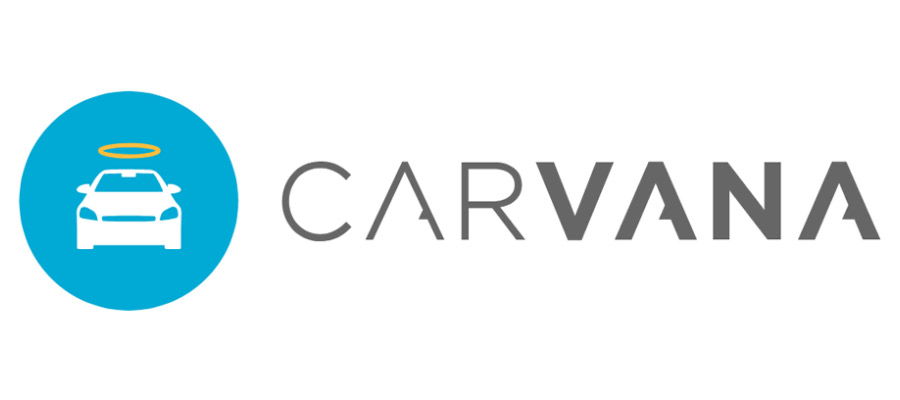Buying a car online has become the new normal, but not all platforms are created equal. Carvana has built its reputation as one of the leading online car retailers, giving buyers the option to shop, finance, and purchase a car without visiting a dealership.

This Carvana review covers how the platform works, what it offers, and how it compares to other options. It is designed for buyers considering Carvana against alternatives like CarMax and Vroom, those with less-than-perfect credit looking for financing, and anyone who values convenience in the car buying process.
What Is Carvana and How Does It Work?
Carvana is an online used car retailer that allows you to buy, finance, and even trade in a vehicle completely online. Instead of visiting a dealership, you can browse thousands of vehicles on the Carvana website, view 360-degree photos, and see detailed condition reports.
Once you select a car, you can apply for financing directly through Carvana or bring your own financing from a bank or credit union. After completing the purchase, you can choose between home delivery or pickup at one of Carvana’s signature vending machines.
Carvana is best suited for buyers who want a fast and low-pressure experience, people with busy schedules who prefer delivery, and those with credit challenges who may find it harder to get approved elsewhere.
Carvana Pros & Cons
Carvana has clear strengths, but there are also drawbacks worth considering before making a decision.
Pros
- Large inventory with nationwide access: Thousands of vehicles available across the country.
- Easy online financing process: Apply and get prequalified without leaving the site.
- Touchless delivery and pickup options: Choose home delivery or pick up from a vending machine.
- 7-day return policy: Return or exchange if you are not satisfied.
- Trade-in options: Sell or trade in your current car directly through Carvana.
Cons
- Higher prices than some local dealers: Vehicles can cost more than at traditional dealerships.
- Limited ability to test drive before buying: You can only test the car once it’s delivered.
- Mixed customer service reviews: Some buyers report delays and communication issues.
- Limited warranty coverage vs. competitors: Shorter warranty terms than some rivals like CarMax.
Carvana Financing in 2026
Carvana offers in-house financing, making it possible to complete the entire purchase on its platform. Buyers can also bring outside financing from a bank or credit union if they prefer.
The minimum credit score for approval through Carvana is generally around 450, which makes it accessible to people who may not qualify with traditional lenders. Interest rates vary based on credit history and income, with loan terms typically extending up to 72 months.
While these rates can be competitive for some buyers, those with excellent credit often find lower APRs through banks or credit unions.
Carvana sometimes requires a down payment depending on the buyer’s credit profile and the vehicle’s price. The process begins with a prequalification, which is done with a soft credit check so your credit score is not impacted. If you proceed with the loan, a hard credit inquiry will be required.
Comparison Table: Carvana Financing vs. Bank/Credit Union Financing
| Feature | Carvana Financing | Bank/Credit Union |
|---|---|---|
| Credit Score Required | ~450+ | Typically 600+ |
| APR Range | Around 6% – 27% | Often 4% – 12% |
| Term Length | Up to 72 months | Up to 84 months |
| Prequalification | Yes, soft pull | Yes, varies |
| Down Payment | Sometimes required | Varies |
See also: Best Auto Loans for 2026
Carvana Fees and Costs
Carvana’s pricing is straightforward, but buyers should still account for extra costs beyond the listed vehicle price.
- Vehicle cost: The price you see online is generally non-negotiable.
- Delivery and documentation fees: Delivery fees vary by location, and a documentation fee is applied to handle paperwork.
- Warranty and protection plans: Each car includes a limited warranty, but extended protection plans cost extra.
- Sales tax and registration: Carvana collects sales tax and registration fees during checkout, just as a dealership would.
These fees are not unusual compared to traditional dealers, but they can add up and should be factored into your budget.
Carvana vs. Competitors in 2026
Carvana isn’t the only option for buying a car online. CarMax and Vroom are two of its closest competitors, and each has strengths and weaknesses worth considering.
Carvana vs. CarMax
CarMax offers a larger inventory and a longer return window. It also has physical locations where you can test drive and get in-person support, something Carvana lacks. Carvana, on the other hand, provides a fully online process and touchless delivery, which appeals to buyers who want maximum convenience.
Carvana vs. Vroom
Vroom is similar to Carvana in that it focuses on an entirely online experience with home delivery. Where Vroom falls behind is customer satisfaction, as reviews often highlight slow service and post-purchase support issues. Carvana has its own service complaints, but buyers generally find its process smoother.
Comparison Table: Carvana vs. CarMax vs. Vroom
| Feature | Carvana | CarMax | Vroom |
|---|---|---|---|
| Inventory Size | 25k+ cars | 40k+ cars | 10k+ cars |
| Return Policy | 7 days | 30 days | 7 days |
| Financing Options | In-house + external | In-house + external | In-house + external |
| Delivery Options | Nationwide delivery + vending machine pickup | Delivery + in-person store pickup | Delivery only |
| Warranty | Limited 100-day/4,189 miles | 90-day/4,000 miles | 90-day |

Customer Reviews and Reputation
Carvana has built strong name recognition, but customer reviews are mixed. The Better Business Bureau and Trustpilot show a combination of positive and negative experiences.
Many buyers praise the platform for its convenience, straightforward financing, and the ability to complete the entire purchase without stepping into a dealership. The 7-day return policy is also a highlight, giving buyers peace of mind.
On the other hand, complaints often mention higher-than-average prices, delays with delivery, and challenges with customer service. Some buyers have also reported issues with vehicle quality after purchase, noting that cars did not always match their online descriptions.
Who Should and Shouldn’t Use Carvana in 2026
Carvana works well for certain types of buyers, but it is not the best fit for everyone.
Best for:
- Buyers with average credit: Carvana’s financing options make approval easier than at many banks or credit unions.
- People who value convenience: The entire process can be handled online with delivery to your home.
- Buyers in areas with limited local inventory: Nationwide access provides more choice than smaller dealerships.
Not best for:
- Bargain hunters: Traditional dealerships or private sellers may offer lower prices.
- Buyers who want a traditional experience: Carvana does not allow pre-purchase test drives.
- People with excellent credit seeking the lowest APR: Banks and credit unions usually have better loan rates.
Alternatives to Carvana
If Carvana does not feel like the right fit, there are other online and local options worth considering.
- CarMax: Offers a larger inventory, physical locations for test drives, and a 30-day return policy.
- Vroom: Similar online model to Carvana, though customer service reviews tend to be weaker.
- Shift: Operates in select markets and is known for competitive pricing and at-home test drives.
- Local dealerships: May provide lower prices, stronger warranty coverage, and the chance to test drive before buying.
Bottom Line
Carvana is one of the most convenient ways to buy a used car online. It offers a large nationwide inventory, quick financing, and the ability to shop from home. The process is simple, and the 7-day return policy gives some reassurance if the car does not meet expectations.
Still, Carvana comes with trade-offs. Prices are often higher than at traditional dealerships, warranty coverage is limited, and customer service can be inconsistent.
If you value speed and ease, Carvana can be a solid option. If you want the lowest price or prefer in-person service, competitors like CarMax, Shift, or even local dealerships may be better choices. Before deciding, compare financing options and total costs to make sure you get the best deal for your situation.
Frequently Asked Questions
How long does it take to get approved for Carvana financing?
Most buyers receive a financing decision within minutes of completing the prequalification form. If additional verification is needed, approval can take up to 24 hours.
Can you use a co-signer with Carvana financing?
No, Carvana does not currently allow co-signers on its loans. The financing application is based solely on the primary applicant’s credit history and income.
Does Carvana accept trade-ins if you still owe money on your car?
Yes, Carvana accepts trade-ins with existing loans. If the car is worth more than what you owe, the difference can go toward your next purchase. If the loan balance is higher than the trade-in value, you’ll need to pay the difference.
Can you refinance a Carvana loan later?
Yes, once your Carvana loan is active, you can refinance it through a bank, credit union, or online lender if you qualify for better rates and terms.
How does Carvana handle vehicle titles and registration?
Carvana manages the title transfer and registration process on your behalf. The paperwork is filed with your state, and you receive your license plates and registration by mail once the process is complete.
Still Searching?
Check out our other auto loan reviews below to continue exploring your options.
